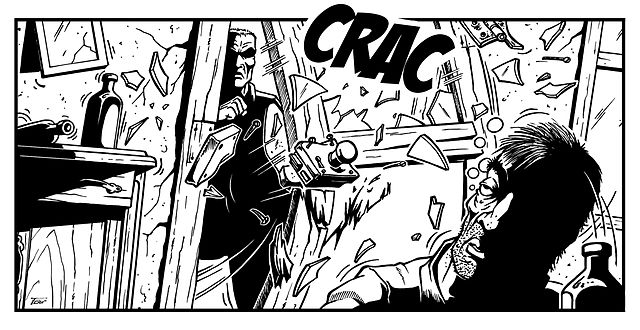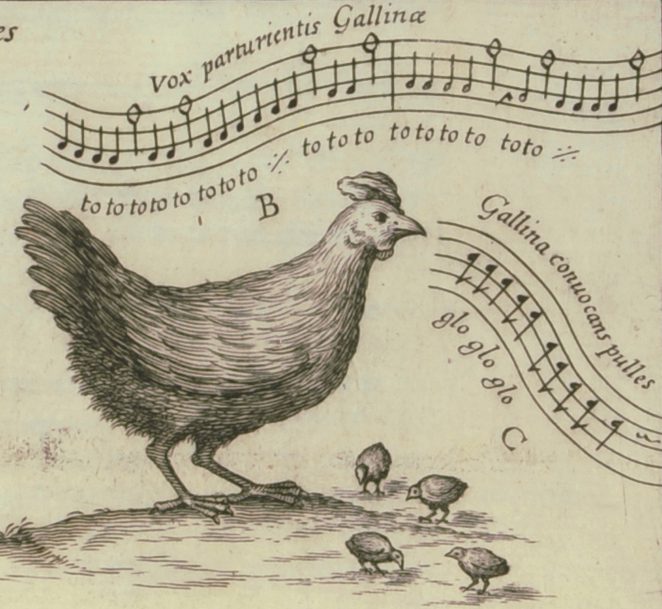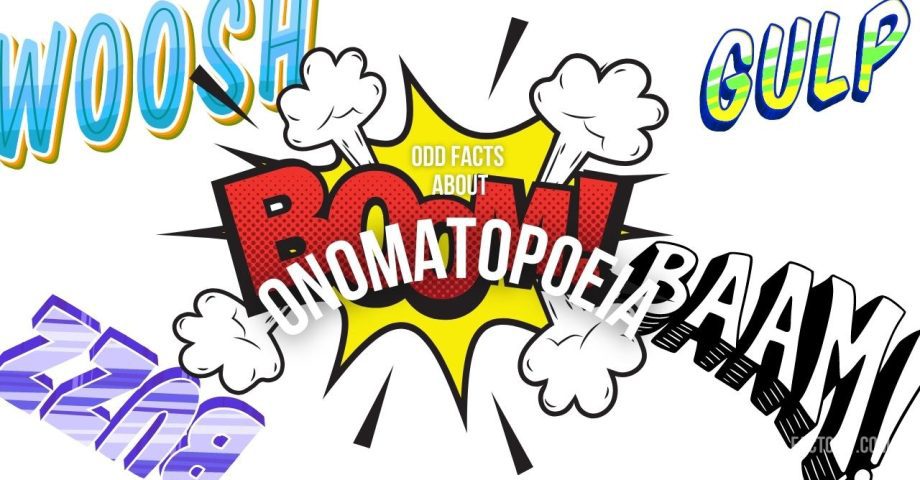10 Odd Facts about Onomatopoeia
Onomatopoeia… it’s a weird word to write, and it’s not the easiest word to say out loud. But what’s it all about? If you’re something of a wordsmith, you may already be aware of this phenomenon – but if not, we’re about to fill you in on all the important details. Here are some fun facts about onomatopoeia you might want to shout about!
1. What is onomatopoeia?
Onomatopoeia is a literary device that refers to words that imitate or mimic the sounds they describe. It comes from the Greek words “onoma” (name) and “poiein” (to make).
2. They’re everywhere!
Onomatopoeic words are found in various languages around the world! They are used to represent sounds from the natural world, human activities, and inanimate objects.
3. Here’s a couple of examples.
If onomatopoeic words still don’t quite make sense to you, these examples should help! Some examples of onomatopoeic words include “buzz,” “crash,” “sizzle,” “meow,” “hiccup,” “boom,” and “whisper.”

4. It’s a literary tool.
As mentioned above, onomatopoeia is commonly used in literature, poetry, comic books, and children’s verse. It adds vividness, sensory appeal, and aural imagery to the text, making it more engaging for readers of all ages!
5. It’s even used in visual media, too.
Believe it or not, onomatopoeia can also be found in various forms of visual media! These include films, cartoons, and advertising. It is used to enhance the auditory impact of the visuals and create a more immersive experience. Open any comic book, you’ll find plenty of them!
6. There are different words for different languages.
Although onomatopoeic words are meant to describe common sounds found all over the world, various languages have different ways of spelling them! For example, a dog’s bark may be represented as “woof” in English, “ouaf” in French, or “wan wan” in Japanese.
7. They demonstrate our feelings, too.
One of the coolest things about onomatopoeic words is that they can evoke emotional responses and create associations! For example, the sound “boom” may evoke a sense of power or destruction, while “giggle” may convey a light-hearted and joyful tone. Try saying them out loud, and you’ll hear what we mean!
8. Knock-knock!
As seen in the title of this fact, onomatopoeic words are not limited to single words but can also be used in phrases or expressions. For instance, “chatterbox,” “tick-tock,” and “knock-knock” are known as onomatopoeic phrases. There are so many of these you’re probably using every day without realizing!

9. They can even portray textures… no, really!
What’s more, onomatopoeia is not only limited to sounds but can also extend to other senses! For example, words like “sweet,” “bitter,” “crunchy,” and “silky” attempt to mimic tastes and textures!
10. It’s all about bringing life to literature.
Skilled writers use onomatopoeia all of the time. It is a great way to create vivid descriptions, evoke specific emotions, and engage the senses of the audience. It adds a layer of sensory experience and liveliness to the language used. Simply put, it is a great way to bring a text to life! Think about some of your favorite poems, if you have any – is there any onomatopoeia present?
FAQs about Onomatopoeia
What is the onomatopoeia of a snake?
Although many of us tend to make the simple “ssssss” sound when imitating a snake, the sound does have a very simple onomatopoeia. Simply say the word “Hiss”!
What is the onomatopoeia of fire?
Many use words such as roaring, crackling, or even hissing to describe fires – and they are loosely considered to be fire's onomatopoeias! Fizz and pop, too, might be considered fire onomatopoeia.
What is the onomatopoeia of a chicken?
It can be difficult to describe the unique sound a chicken makes, so you’ll be glad to know that it does have a simple onomatopoeia, too! Chickens cluck, and peck at the ground when eating. These are their most commonly used onomatopoeia.
Further reading:
https://factcity.com/tag/literature
https://www.twinkl.co.uk/teaching-wiki/onomatopoeia
https://www.rd.com/list/examples-of-onomatopoeia/
Do you know any fun facts about onomatopoeia? Share them in the comments below!
This page was last modified on August 8, 2023. Suggest an edit









